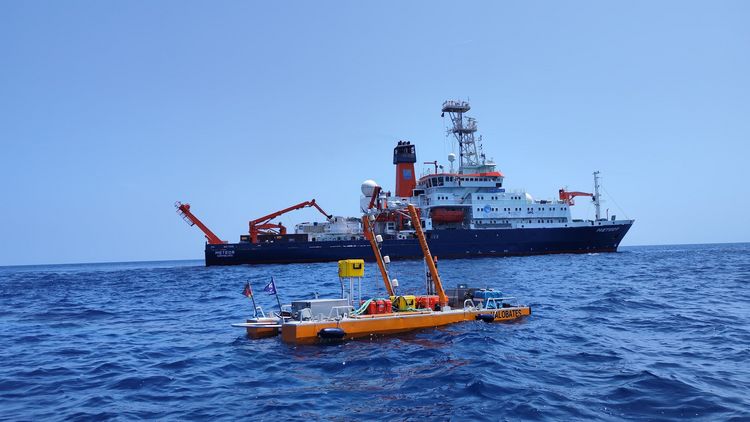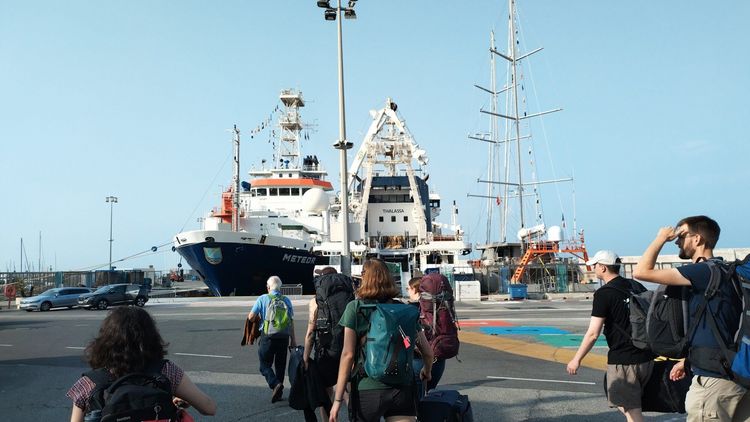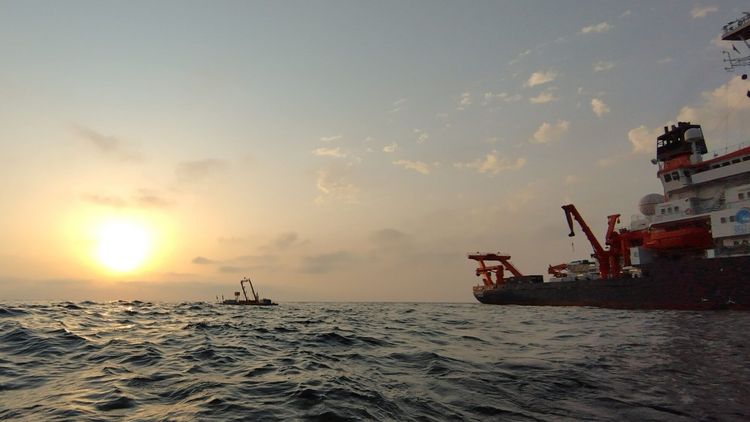From Nice to the Atlantic: Launch of the M211 meteor expedition
Article by Pia Goecke and Leonie Jaeger
Following the UN Ocean Conference in Nice, ICBM scientists have set off on a six-week expedition on board the research vessel Meteor. The aim of the M211 expedition is to investigate how the salinity of the sea surface can be used to better understand the global water cycle. The focus is also on cold air masses caused by the evaporation of rain. The data collected will be used to record climatological changes in the atmosphere and the ocean.
The interdisciplinary research team with working groups from Germany, the USA and France is led by Prof Dr Oliver Wurl. On board are oceanographers, atmospheric researchers and microbiologists. The team uses an autonomous and a remote-controlled research catamaran to analyse the sea surface and near-surface layers, which are supplemented by the use of drifters and drones. The researchers are also analysing the chemical, bio-optical and microbiological properties of surface films - in particular their role in evaporation.
An initial three-day mission in the Mediterranean was successfully completed. The researchers were accompanied by a television team that documented the work for the ARD documentary series "Wie extrem wird das Wetter, Sven Plöger?". The film team was then replaced by other scientists. In the meantime, the FS Meteor has set course for the central Atlantic, where it has already been accompanied by rays and dolphins. During the following eight-day transit, maintenance and optimisation work is on the agenda before the scientific investigations in the target area begin. The expedition participants report on their work and life on board in a logbook.

![[Translate to English:]](/f/5/_processed_/3/2/csm_ICBM-Logo-transparent-_91fe1c6774.png)


